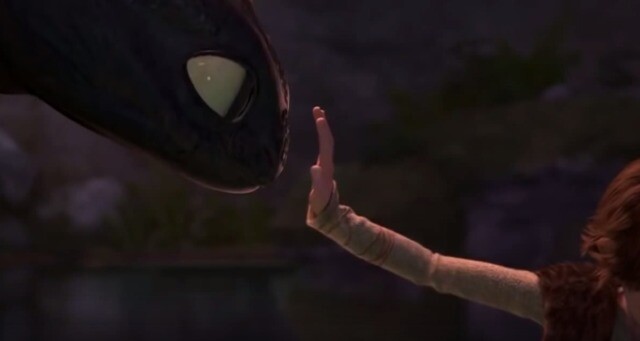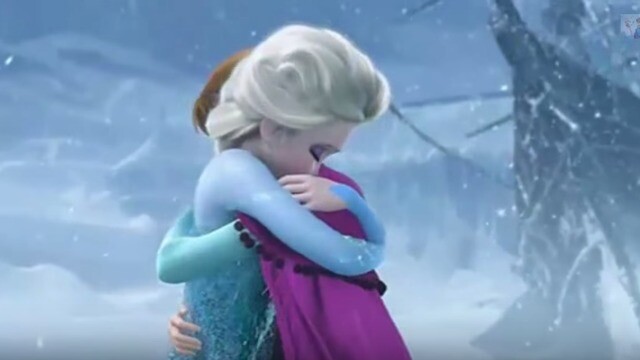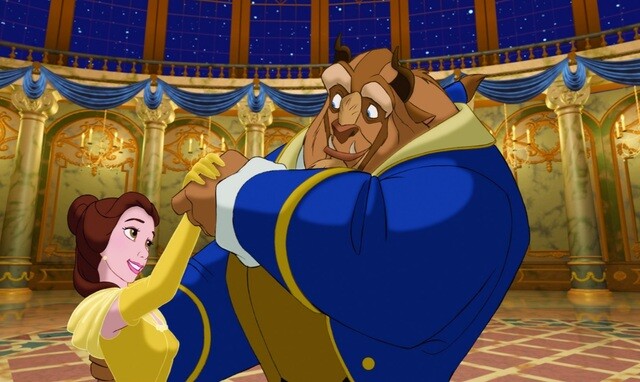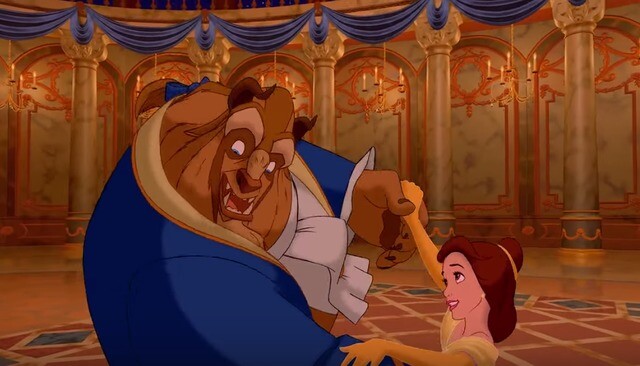Love. It's a word that gets thrown around a lot these days in songs, on TV, even in politics.
Which makes me wonder—what are we even talking about when we use the word love? Most of the time, media portrays twitterpation, sexual attraction, desire, self-interest, and superficial fun as love. And while these things aren't bad—in fact, they should have a place in our relationships—they can become dangerous when they overshadow the more meaningful and worthwhile side of love.
But, now and then, some movies get it right. We all know that Mormons love Disney— a fascination not altogether misplaced. Because while Disney can sometimes get caught up in the superficial side of love (what with their love-at-first-sight fixation), there are many times they do hit the mark.
Here are three Disney movies that show the deeper, eternal side of love and teach principles great for kids—and adults. Because let's face it, you are never too old for Disney!
Speaking of Mormons and Disney, did you know that a Mormon helped shape Mickey Mouse? Check out these and other LDS-Disney connectionshere. Or, find out what Disney movie Mormons love best and vote for your own favoritehere.
Love Has the Power to Transform Us
The Disney “tale as old as time” mirrors beautifully the quintessential love that spans all time—Christ’s sacrifice of His life and our Heavenly Father’s sacrifice of His Son for us.
Beauty and the Beast shows the power of love to change hearts and shape characters. Love softens. It refines. It brings out the best in those that are loved, and those that love.
The Beast's magical transformation at the end of the movie is only made possible through Belle’s selfless love—a love that allows her to look beyond his gruesome appearance and gruff manners to something greater underneath.
This ability sounds very familiar. In fact, it’s something the Lord has commanded us to do:
"But the Lord said unto Samuel, look not on his countenance, or on the height of his stature . . . for the Lord seeth not as man seeth; for man looketh on the outward appearance, but the Lord looketh on the heart" (1 Samuel 16:7).
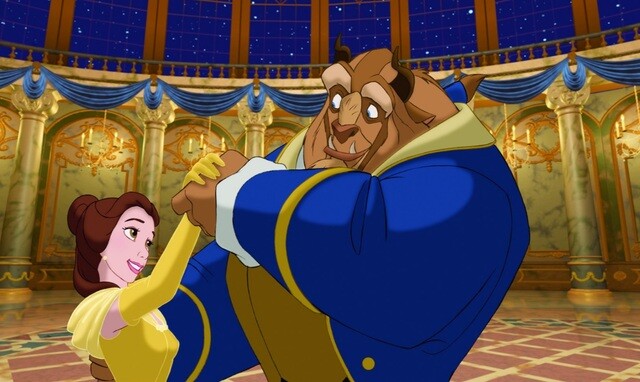
Image from IMDb
This level of love can be summed up with one word—charity. Christ’s love for us is devoid of any self-interest or pettiness. It is not dependent on our abilities, fashion-sense, appearance, or actions. It is universal. It is constant. And it is truly life-changing.
Despite the world’s pessimistic outlook saying the contrary, we can change. As President Monson noted, “I’m reminded of the words of a prison warden who taught this fact. A critic who knew of Warden Duffy’s efforts to rehabilitate men said, ‘Don’t you know that leopards can’t change their spots?’
Warden Duffy responded, ‘You should know I don’t work with leopards. I work with men, and men change every day” (“Tothe Rescue,” April 2001 general conference).
As in Beauty and the Beast, the motivating force behind our desire to change as well as the means to change itself comes only through love—our Heavenly Father and Savior’s love.
“The more we allow the love of God to govern our minds and emotions—the more we allow our love for our Heavenly Father to swell within our hearts—the easier it is to love others with the pure love of Christ. As we open our hearts to the glowing dawn of the love of God, the darkness and cold of animosity and envy will eventually fade.” (Dieter F. Uchtdorf, "The Merciful Obtain Mercy," April 2012 general conference)
For more gospel insights into Beauty and the Beast, check out this great FHE.
Lead images from IMDb
Family Is Where Happily Ever After is Found
When Disney’s latest princess installment came out, the world was gripped with Frozen fever. And there’s little wonder why. The movie is full of Disney’s characteristic wittiness and charm as well as a humor and perspective that is altogether refreshing.
Instead of following typical plotline definitions of “true love,” in Frozen we find a true love existing between two sisters who continue loving and sacrificing for each other, no matter what. Frozen is a powerful depiction of what familial love means, what it can endure, and how it can change you. And that message couldn’t have come at a more perfect time.
In a world where family is viewed as a social nicety—not a divine necessity—and where marriage is viewed as a temporary convenience—not an eternal commitment—it’s encouraging to see a modern movie portraying the strength and importance of family ties.

Image from IMDb
As Elder Perry said in his final general conference address:
“My brothers and sisters, the restored gospel centers on marriage and family. It is also on marriage and family where we can unite most with other faiths. It is around marriage and family where we will find our greatest commonality with the rest of the world. It is around marriage and family that The Church of Jesus Christ of Latter-day Saints has the greatest opportunity to be a light on the hill.
"Let me close by bearing witness (and my nine decades on this earth fully qualify me to say this) that the older I get, the more I realize that family is the center of life and is the key to eternal happiness” (“Why Marriage and Family Matter—Everywhere in the World,” April 2015 general conference).
Out of all our accomplishments in this life, family ties are the ones that last—not only through abominable snowmen attacks and glacial temperatures, but through time as well. When Elsa and Anna sing “For the first time in forever,” it’s no mistake they emphasize forever. Its use with phrases like “you don’t have to be afraid,” “we can face this thing together,” and “I’ll be right here” tells us that this relationship is deep and long-lasting.
And, just as it takes a sister’s love to melt both Elsa and Anna’s frozen hearts and ultimately save their lives, it takes our Brother’s love to create lasting change and provide everlasting salvation. For, with our Savior, we can overcome our fears, we can face any obstacle, and we can know that through it all, we are not alone.
In sacrificing himself to save us all, our Savior—like Anna and Olaf—teaches us that “some people are worth melting [or dying]” for, and that love is worth the sacrifice and eternal family worth the commitment.
True Love Withstands Time
Who can forget the touching opening to another Disney Pixar masterpiece, Up. The story of Carl and Ellie, told so simply yet so poignantly, can’t help but resonate with viewers.
Their story is one of commitment, of finding strength with each other in good times and bad. It’s a marriage of loss and hardship, joys and memories, and striving to create a family despite heartbreaking setbacks.
But more than that, theirs is a story of true love—and I don’t mean true love in the fairytale sense. I mean true, real love. The kind of love that takes two people full of flaws and quirks and somehow miraculously fits them together to form a functioning whole. The kind of love that exposes weaknesses and imperfections only to help us grow stronger and work towards perfection—together.
But sadly, as the movie continues, we discover that this love can’t last. Or do we? Long after we’ve come to the heartbreaking realization that Carl is left old and alone in the world, the mood of the movie begins to change.
Through his adventures, Carl comes to find that his and Ellie’s love hasn’t really died. Her memory and her spirit are still with him. Even after death, her influence is inspiring him to reach out and look up—to make experiences, help others, and reach heavenward. I can think of no love truer than that.
In short, Up portrays a marriage in complete contrast with the world’s definition of marriage today—one that supports prophetic views about the importance and longevity of marriage.
Take this counsel from our beloved Elder L. Tom Perry:
“The entire theology of our restored gospel centers on families and on the new and everlasting covenant of marriage . . . We believe that marriage and family ties can continue beyond the grave—that marriages performed by those who have the proper authority in His temples will continue to be valid in the world to come. Our marriage ceremonies eliminate the words ‘till death do us part’ and instead say, ‘for time and for all eternity.’
"We also believe that strong traditional families are not only the basic units of a stable society, a stable economy, and a stable culture of values—but that they are also the basic units of eternity and of the kingdom and government of God” ("Why Marriage and Family Matter—Everywhere in the World,” April 2015 general conference).
Bonus: Love Helps Us Stand Against the World
Even though How to Train Your Dragon isn't Disney, this animated masterpiece teaches so many good principles, I couldn't pass up the chance to mention it.
Hiccup—it’s a peculiar name to match an equally peculiar boy. To some, his name might suggest he’s a flaw or an unnecessary and awkward inconvenience. Yet it’s only Hiccup’s perspective that has power to change the world as he knows it.
When all of his village chooses to either slaughter dragons or run from them, Hiccup searches for a different solution.
In our world today, many people take the fight or flee approach. When dealing with people and differences, we sometimes tend to think the worst of others. Our initial response is to fight against what we don't understand or to ignore it entirely. We forget that there is another option. We forget that even while Christ was at his pinnacle of pain hanging on the cross, he extended love—not hate or fear—to others. He embraced everyone—saint, sinner, Sadducee, and Samaritan. Of the potential of love, John H. Groberg says:
“When filled with God’s love, we can do and see and understand things that we could not otherwise do or see or understand. Filled with His love, we can endure pain, quell fear, forgive freely, avoid contention, renew strength, and bless and help others in ways surprising even to us. Jesus Christ was filled with unfathomable love as He endured incomprehensible pain, cruelty, and injustice for us . . . His love knows no barriers” (“The Power of God’s Love,” October 2004).

Image from IMDb
In a Christlike fashion, Hiccup's peculiar compassion compels him to try to understand his enemies even after they’ve taken so much from him. Because of this, he becomes the first to soar above the clouds and find the light and hope of a higher perspective. Indeed, the description found in 1 Peter 2:9 seems to fit Hiccup perfectly:
“But ye are a chosen generation . . . a peculiar people; that ye should shew forth the praises of him who hath called you out of darkness into his marvelous light.”
Hiccup's example teaches us how to find the courage not to fight, but to love. He teaches us how to stay in touch with the celestial and soar to greater heights. He teaches us how the be "in the world, but not of the world." And he teaches us what it truly means to be peculiar.
